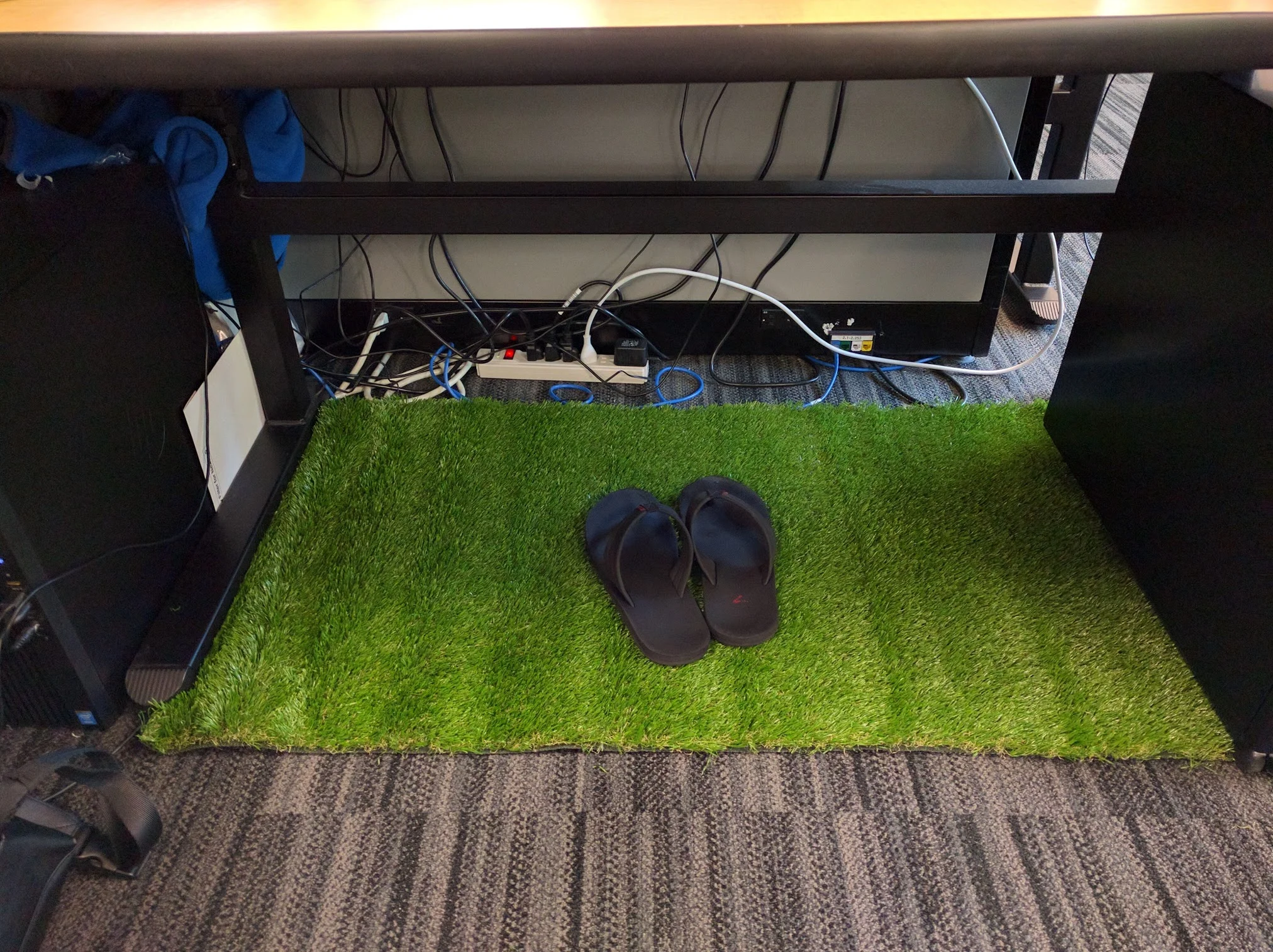A huge campus with many buildings. A terrific amount of very smart people. Vague guidelines on project details. Learning new things everyday. Having been thinking about these symptoms lately, I have decided that working at Google is as close as I can get to getting paid to go to school. I loved being in college for the most part. Learning was awesome and being part of the college community was awesome. I loved my opportunities to teach other people too. For me, there were really only two drawbacks. First, general education courses are fucking useless in their current form (I'm a bit salty about this point because I still hold SO much resentment). Second, and perhaps more obvious, is that you have to pay a fantastic sum of money to attend most colleges.
So basically I'm trying to have a little bit different outlook on my job. This is not to say my outlook was very poor in the past. I have just found a way to improve it. I always wanted to get paid to go to school and now I basically have the chance. And actually, if you think about it, this is a pretty world class education considering some of the technologies and peers that one gets to work with here. And instead of paying to attend a University, I'm instead getting paid handsomely for doing very similar work to the work I would be doing in school. So I guess I have a piece of advice to all those considering getting a masters degree in computer science.
Don't get a masters degree in computer science.
I think a lot of people would rightly freak out at anyone discouraging someone from higher-education. But let's talk about just a couple of specific points to consider. Grad school can be really expensive. You could end up paying a lot of money for that couple extra years of school. In some cases it might cost you 6 figures. Meanwhile if you choose to go to industry, you are guaranteed to instead earn six figures in that same time frame. In some cases you could be earning 6 figures/year right out of college. In terms of educational value, it depends on where you work. If you have the opportunity to work at one of the big companies like Google or Microsoft, you could be working with tools and technology that the educational realm wont get to play with for some time. But that isn't always true and should be carefully considered if important to you. A masters degree looks really good on a resume, but so does a couple years at a job and a possible title change. By my estimation, someone with the title of software engineer II has the equivalent if not more earning potential than someone with a masters.
I don't have any eloquent way to end this post.




















